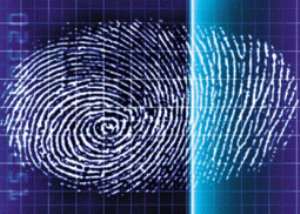
The Electoral Commission (EC), has initiated processes to use the biometric mechanism for capturing data in preparation for the next voters register for Election 2012.
This followed an acceptance by all the political parties, civil society groups and the EC that the biometric system of voter registration is the antidote to the problem of multiple voting and impersonation, which is commoinly believed to characterise Ghana’s electoral system.
Biometrics, is the science that tries to fetch human biological features with an automated machine either to identify or authenticate. Biometric products remove the need for passwords and Personal Identification Numbers (PIN). It rather exchanges knowledge with the individual’s features such as finger prints or proximity identification and makes it comfortable and fast to record features.
The Electoral Commission is currently pre-occupied with the procurement processes of biometric equipment. It is yet to publicly explain how the system would work.
The Public Relations Director of the Electoral Commission, Mr Christian Parry in an interview, told the Daily Graphic that the Commission was putting together a detailed document on how the biometric registration would be carried out and would therefore not pre-empt the document..
Meanwhile, in an interview with Professor Ken Attafuah, a past Executive Secretary of the National Identification Authority (NIA) which is using similar biometric equipment to capture data of citizens, he explained that under the system, finger prints of voters are captured together with their photographs, by an automated machine.
Professor Attafuah who is a criminologist and human rights lawyer said, what this means is that only the registered person with a matching fingerprint and photograph could vote in an election.
'Therefore a biometric register would cut off a big chunk of the problems associated with the regular paper voting system,' he said.
Specifically he said, 'biometric voting is where you apply your thumb to an electronic device and it instantaneously registers in a national data bank, crosschecked in seconds and feedback given and you are cleared to vote. It registers across the country so that you cannot go and vote a second time.'
“That would be the ultimate we have to do but even that of course is not entirely foolproof but it is a significant advance and we must go for that”, Professor Attafuah contended.
“It will serve as a deterrent to those individuals who would not have registered biometrically before the voting date because you know that if you present yourself, you will not be cleared to vote. So in that sense, only genuinely registered voters would present themselves,” he added.
On how the automated machines would be powered in rural areas where there is no electricity, Prof Attafuah said there would be no problems if we go for solar energy propelled machines, considering that there is abundant sunshine in the country, adding that the equipment when adequately charged would have capacities of over 24hours of use.
“We don’t need generators because by and large we vote during the day time and we don’t have multiple time zones with different daylight and dark times, he stressed.
Asked whether there was need for the Electoral Commission to involve the political parties in the processes for the biometric system, Prof Attafuah said, it is a good governance principle, a measure of transparency, accountability and openness to involve the political parties in the processes concerning the biometric system but of course it is not every nitty-gritty thing that the parties have to be involved.'
“But of course, if you do that you get rid of suspicion and conjecture”, he stressed.
He said even though the Electoral Commission was constitutionally free to do its work, not subject to the control and direction of any authority, it is advisable for it to involve the political parties in its dealings to build broad consensus and a wider acceptance of the instruments or mechanisms adopted by it, especially as the Inter Party Advisory Committee (IPAC) meetings have proven to be very a useful platform.
Since the advent of the 4th Republic, there have been agitations from the political parties for improvement of the electoral system, from the days of opaque ballot boxes and voter ID cards without photographs which generated massive allegations of ballot stuffing, impersonation and multiple voting.
The process has improved over the years with the introduction of transparent ballot boxes and photo ID cards.




 Saglemi Housing Project will not be left to rot – Kojo Oppong Nkrumah
Saglemi Housing Project will not be left to rot – Kojo Oppong Nkrumah
 Transport fares hike: GPRTU issue two-day ultimatum
Transport fares hike: GPRTU issue two-day ultimatum
 ARC endorses Alan as presidential candidate – Buaben Asamoa
ARC endorses Alan as presidential candidate – Buaben Asamoa
 Akufo-Addo appoints Kwasi Agyei as new Controller and Accountant-General
Akufo-Addo appoints Kwasi Agyei as new Controller and Accountant-General
 PNC dismiss reports of mass resignations
PNC dismiss reports of mass resignations
 PAC advocates for revenue collectors to be engaged on commission basis, not full...
PAC advocates for revenue collectors to be engaged on commission basis, not full...
 Genser Energy commissions 110km of natural gas pipeline at Anwomaso
Genser Energy commissions 110km of natural gas pipeline at Anwomaso
 Naa Torshie calls for tolerance, peace ahead of 2024 election
Naa Torshie calls for tolerance, peace ahead of 2024 election
 Asantehene commends Matthew Opoku Prempeh for conceiving GENSER Kumasi Pipeline ...
Asantehene commends Matthew Opoku Prempeh for conceiving GENSER Kumasi Pipeline ...
 Let’s do away with ‘slash and burn politics’ in Ghana — Dr Adutwum
Let’s do away with ‘slash and burn politics’ in Ghana — Dr Adutwum
